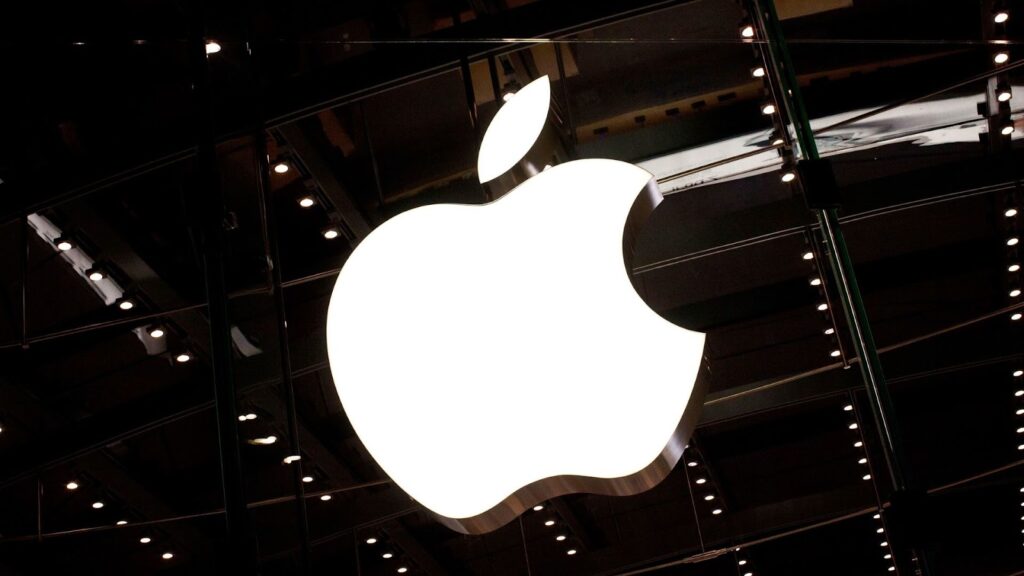
With the release of its Apple Intelligence package, which includes capabilities for iPhones, iPads, and Macs, Apple is taking a serious approach to artificial intelligence. Certain requests will be sent to OpenAI’s ChatGPT with the user agreement. However, a senior executive claims that Apple uses a blockchain-like model in its private AI services to protect customer privacy.
Senior Vice President of Software Engineering Craig Federighi and Senior Vice President of Machine Learning and AI Strategy John Giannandrea took part in a press interview after Apple’s keynote address. Apple’s ambitious AI goal was made clear throughout the session, which was chaired by content creator Justine “iJustine” Ezarik.
Privacy Measures and Blockchain-Like Model
Federighi responded by saying that requests made to the servers of Apple are anonymized in response to a question concerning the security of consumer data that may leave their devices. The IP addresses are concealed, and the server is built so that data is not logged. Additionally, to guarantee that user devices only communicate with servers running auditable software, an image of the server software will be made available to the public for independent security audits.
Federighi noted that Apple intends to publish a white paper outlining its security architecture. “It’s a clever kind of blockchain-ish attestation log to ensure the iPhone will only trust the software that has been publicly verified,” Federighi said. “This signifies a noteworthy progression in the level of confidence one can accord server computing.”
Federighi stressed, “It’s crucial that you know no one—not Apple, not anyone else—will have access to any of the information used to process your request.” This is especially true as Apple continues to push into artificial intelligence and the personal data required to deliver its services.
A high-ranking Apple official attested to the application of “blockchain-ish” technologies. Federighi made it clear that Apple is neither using a decentralized model nor putting in place a real blockchain.
Understanding Apple’s Privacy Commitment
On Monday, Apple revealed details about its Private Cloud Compute (PCC) system which is intended to handle user requests in an extensive security blog post. Federighi pointed out that to satisfy AI expectations, PCC obscures these requests and depends on servers running openly auditable software.
To illustrate system security, Apple will essentially release images of its software to the public. The system has a mechanism that makes sure devices only communicate with servers through publicly listed software that uses cryptographic technology and is intended for auditing purposes. The post said that user devices would only transfer data to PCC nodes that could cryptographically testify to running publicly listed software. This commitment is enforceable. Apple will “publish the measurements of all code running on PCC in a tamper-proof transparency log,” it was further highlighted.
The following details were added to the post: “Only PCC nodes whose measurements correspond to a software release in the public transparency log will have their request payload key wrapped by the user’s device.” All code on the PCC node is guaranteed to be included in the attestation by the same stringent code-signing mechanisms that prohibit illegitimate software.
Federighi’s explanation of a “blockchain-ish” strategy makes sense. Despite the similarities, some in the cryptocurrency sector criticize Apple for not referring to it as a blockchain openly.
Referring to the blog piece, Wei Dai, a Research Partner at cryptocurrency investment firm 1KX, tweeted, “Say blockchains without saying blockchains.”
Nonetheless, the PCC model maintains Apple’s core control while allowing for openness and public scrutiny. Users still have to believe Apple’s privacy guarantees, and there is no decentralized consensus model in place.
“Fluffy Pony” Riccardo In response to Dai, Spagni—the creator of the privacy coin Monero—said, “It’s more like a linked list, or actually more like [Github].” Here, there is a central publisher rather than a consensual process. “This isn’t a blockchain,” he continued.
Apple is still investigating blockchain technology, though. A recently issued patent specified a “decentralized ledger” for publishing media assets, while a 2023 patent application mentioned a “Distributed Network Management System” and included possible blockchain use.
Although Private Cloud Compute isn’t a blockchain, Apple has hinted that further information may be disclosed in a security post. According to Craig Federighi, the present implementation is “blockchain-ish,” indicating Apple’s cutting-edge approach to AI security and privacy.
Personal Note From MEXC Team
Check out our MEXC trading page and find out what we have to offer! There are also a ton of interesting articles to get you up to speed with the crypto world. Lastly, join our MEXC Creators project and share your opinion about everything crypto! Happy trading! Learn about interoperability now!
Join MEXC and Get up to $10,000 Bonus!
Sign Up


